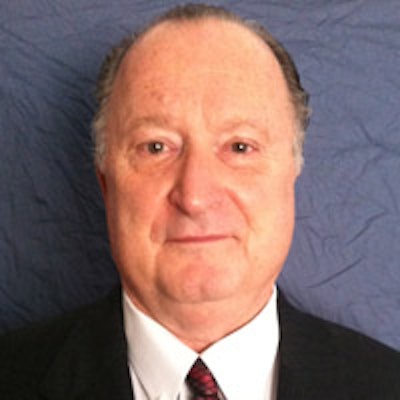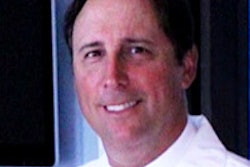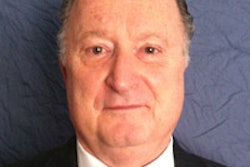
Owing to a number of publications of mine on the subject of dental practice management or dental support organizations (DPM/DSO) in a variety of Internet and print magazines, I am approached for submitting advice to either a single individual or a group on how to become such an entity almost on a daily basis.
Individual interest ranges from state-licensed dentists leaning toward the economies of scale and centralization of management arguments to young nondental entrepreneurs or older nondental retirees who want, or have always wanted, to participate in the profitable returns from a service that, like grocery stores, will never go away. Because after the first wince of oral pain, as with hunger, people will always find a way to address their needs with necessary funds. Group interest ranges from solid financially backed and strong investment funds created by an affluent or at least well-off set of individuals to lackluster pie-in-the-sky individuals who do not have a cent to rub together but like masquerading as if they did.
 Thomas Climo, PhD, is a dental practice management consultant and a past professor of economics in England.
Thomas Climo, PhD, is a dental practice management consultant and a past professor of economics in England.
As a consultant, I could waste, and have wasted, a good deal of time by not separating the wheat from the chaff at the outset of a consulting assignment. I am democratic enough to think that anyone who has taken the time to read one of my articles, much less bother emailing and telephoning me, is sincere. Sincerity, like beauty, is in the eye of the beholder.
Recently, a man masquerading as an investment fund spent six months of weekly contact asking questions and inquiring how I could match him and his capital with not a single set but with a whole set of multiple dental practices so that he and his fund could become a major force in the DPM/DSO industry.
His modus operandi was to somehow persuade a state-licensed dentist who owned a set of practices to continue as the clinician for these practices but hand the profit and nonclinic management over to him and his nonexistent group of management personnel. While there would be a small, front-end cash payment to the owner-dentist, the incentive behind the approach was supposed to be that, as being part of 100 or so dental practices (and as a shareholder of the DPM/DSO), the owner-dentist would be better rewarded, have less risk, and more geographic diversification, than he or she ever could as a solo practitioner with four or five dental practices in one area.
I would listen to this gentleman while shaking my head at the incredulity of an owner-dentist actually taking a subsidiary role in the dreams and aspirations of a man who had not yet formed a DPM/DSO, as this action would require money in the form of a legal retainer. Nor had this person retained me as a management consultant to help shape his DPM/DSO as a viable entity that could actually run the nonclinic side of a dental practice.
“Needless to say, the owner-dentist was not fooled.”
His sole financial outlay to this point in forming his grandiose philosophy was some free reading in dental magazines, some free contact with private equity groups who would never take a second call, and, of course, repeated and elongated discussions with this mug of a consultant he had found who continued to take his calls. Me! (Mitigating my sins for taking his calls is the fact he had been referred to me by a healthcare law firm for which I have full respect.)
Reward seemed at hand when, finally, I was retained for three months to help this dreamer frame an offer for a 10-practice dental facility near where the dreamer lived. What an ordeal! As usual, the owner-dentist of these practices kept no uniform books, nor any consolidation, and I was forced to prepare a compilation review and consolidate the 10 practices into a uniform set of financial statements, both income and balance sheets.
I then executed a due diligence on the practices that included the typical internal audit procedures that I have documented in a previous column. Ultimately, I prepared a report that included a valuation of the 10 practices and an offer price the dreamer should make that assured a front-end value added to his as yet unformed DPM/DSO.
Needless to say, the owner-dentist was not fooled. If he were to accept this kind of offer from this kind of man, what assurances did he have that the dreamer could grow the number of practices beyond the 10 the owner-dentist had for himself? The answer was "none." The owner-dentist passed, and the dreamer had the audacity to tell me that instead he, the dreamer, had withdrawn the offer owing to the owner-dentist's lack of sophistication and failure to understand what could be achieved through the dreamer's philosophy.
Since it was at the tail end of my three-month assignment, I interpreted for the dreamer what I believed to be the owner-dentist's correct findings: 1) The dreamer had no demonstrable show of money, 2) The dreamer had no demonstrable show of organizational capability, 3) The dreamer had no demonstrable management team, and 4) The dreamer had no compelling reason why the owner-dentist should trust him.
I was fired the minute the dreamer received my email defending the owner-dentist. It was one of the happier firings of my life -- until I learned he had found out about a multiple set of dental practices that I was selling on behalf of an owner-dentist in another state. I was the appointed transaction agent.
The dreamer dutifully went around me and approached my principal, running the same tired argument past this principal. It wasn't enough that this man had soiled nine months of my life, he was now invading my territory and the success fee I would win on an actual cash sale of the practices rather than this contortion of a purchase as constructed by the dreamer without much, if any, front-end money.
So, the dreamer still lives with me, and I can't seem to dissuade the owner-dentist for which I am the transaction agent of just how lousy a deal this arrangement would be for him. I am left praying and hoping that when I bring in some solid cash from one of the two other interested bona fide buyers, realism will return to my principal. One thing is for certain, the dreamer can bring in only hopes and aspirations, neither money nor organization nor management.
Where in the evolution of the economic agent, from Genesis to the Wealth of Nations, did God cause to create this miscreant of a person?
Thomas Climo, PhD, is a professor emeritus of accounting and finance at a major university in the U.K. He has published extensively about the importance of modern managerial and financial decision-making for dentistry. He is a consultant to corporate and solo practitioner dental practice management companies in the states of Arizona, California, Connecticut, Nevada, New Hampshire, New York, and Massachusetts. He can be reached by email at [email protected] or by telephone at 702-578-2757.
The comments and observations expressed herein do not necessarily reflect the opinions of DrBicuspid.com, nor should they be construed as an endorsement or admonishment of any particular idea, vendor, or organization.



















